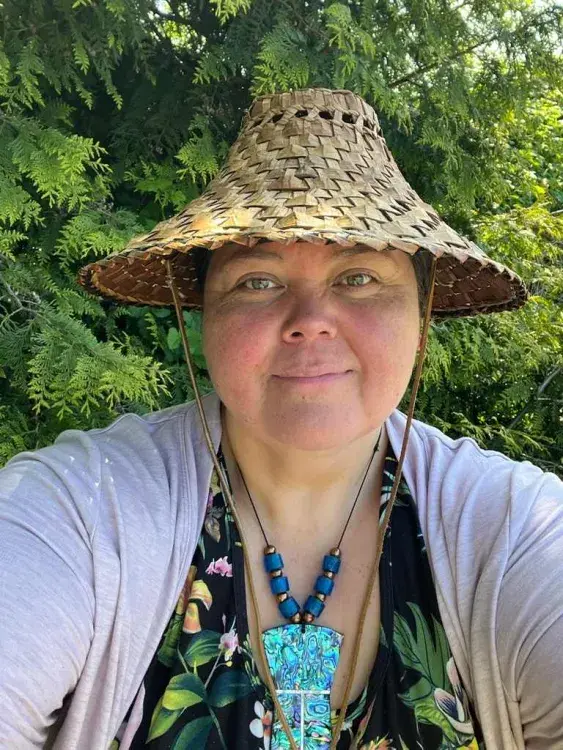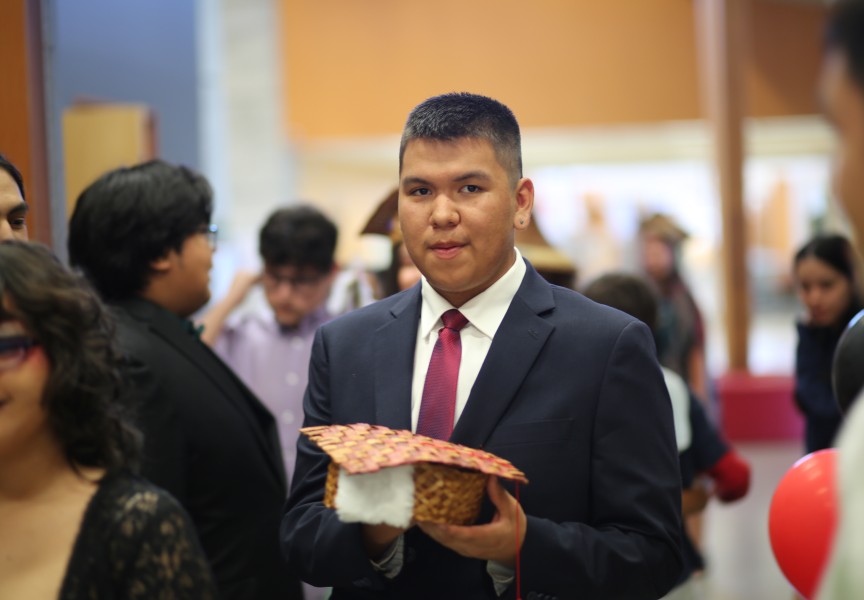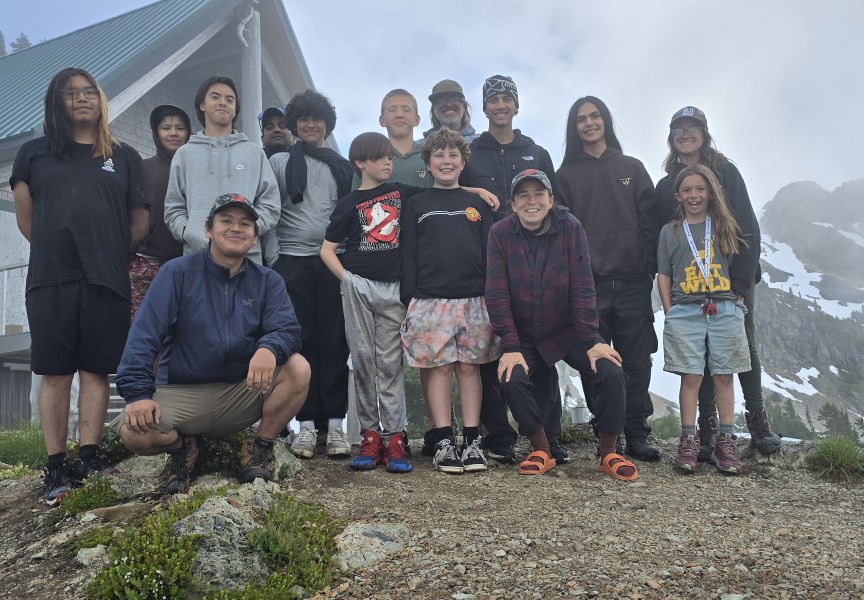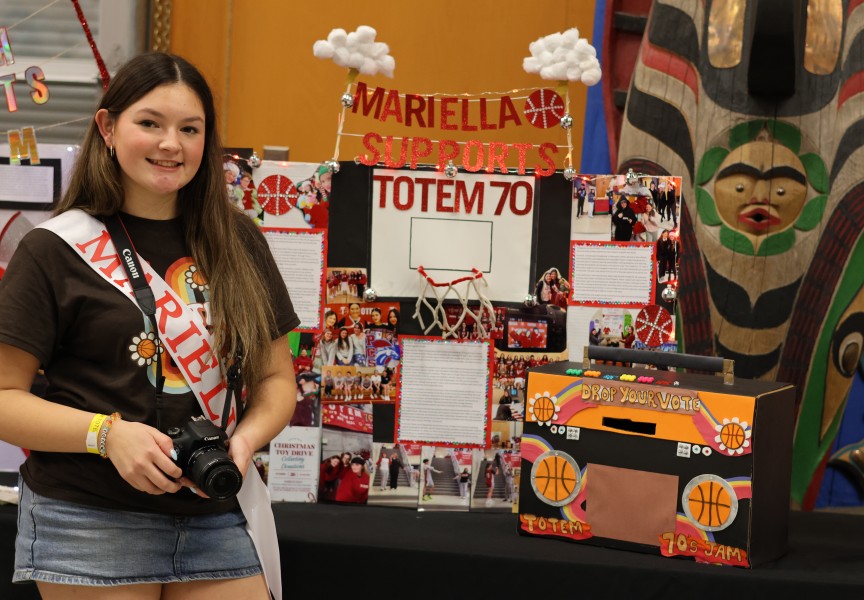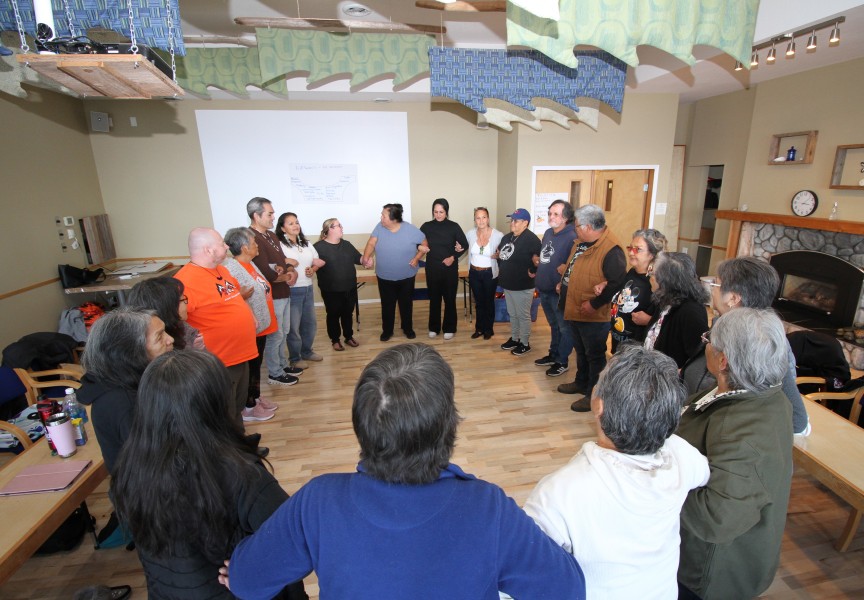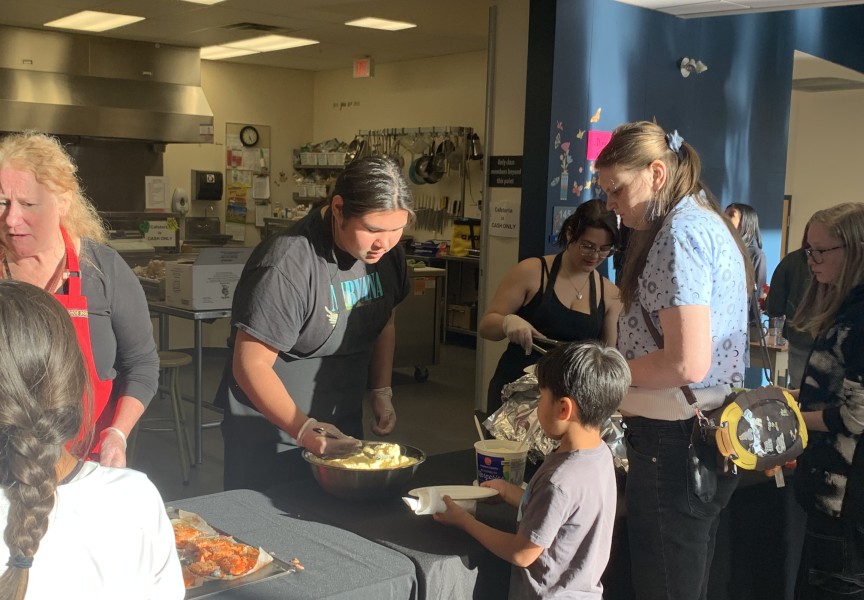Lelaina Jules (ƛ̓akʷapiqa) of Hesquiaht, grew up in Hot Springs Cove, 26 nautical miles north of Tofino. She spent 18 years in her home community learning her language, dances and songs. She learned where to fish, gather berries and medicines, and she learned how to swim safely at her local lake.
Growing up rooted in her culture, on the land alongside encouragement from her parents, fueled a lifelong love for learning and education.
The Hesquiaht woman, who has a bachelor's degree in Anthropology and First Nation studies, a bachelor of education and a master’s in Educational Leadership, all at Vancouver Island University, will be taking on the new role as vice principal for Indigenous Education at School District 71 (SD71), starting this August.
Jules, who has been a professor in VIU’s education faculty, has worked for SD 71 as their district curriculum support teacher for over six years. This entailed supporting teachers as Indigenous content was woven into the curriculum, she shared with Ha-Shilth-Sa.
“I think that the most important aspect of public education today is providing equitable education for all students,” said Jules. “One that includes the history of the land, [and] the history of the people of the land accurately.”
She added that it’s important for First Nations people to guide the teaching of Indigenous content.
Jules shared that she believes students are currently being “fully educated” by knowing who they are, where they are, as well as the value and importance of Indigenous peoples.
But for Jules, it is most important that in her role Indigenous students see themselves represented.
“I just really feel excited when there's [an] opportunity for Indigenous students to see themselves reflected not only in the learning, but also in the teaching,” said Jules. “And seeing themselves reflected like they belong here.”
“But now we're in a time where not only do we know we need to do better with Indigenous ways of knowing, being, and doing, we also need to do better with our learning from the land and on the land, and with the land,” said Jules, who noted that the education she grew up with has not typically been accepted in mainstream learning systems.
But Jules believes that how education is perceived is shifting.
“The value of education and learning doesn't just happen in the classroom, it doesn't just happen at school, it happens all the time, all around us,” she said. “I'm looking forward to not having to just embed Indigenous knowledge [into] the system, I'm hoping that the system is also going to shift towards aligning with Indigenous ways of knowing and doing.”
Though her role is still being developed, Jules will be joining a team of two others, Joe Heslip, also new to his role as associate superintendent, and Bruce Carlos, principal of Indigenous Education, who will determine the future of what Aboriginal education looks like for SD 71.
“I think, for a long time, it's always been about adding Indigenous content,” said Jules, stressing the importance of using First Nations knowledge to make the education system “more holistic or more inclusive”.
“We are going to start taking back those stories and those places - things that have been tried to be erased from history - we want people to know that Indigeneity and Indigenous ways of knowing and being is number one, dynamic; it's complex, and it is empowering,” said Jules.

